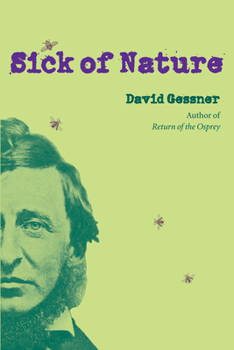Sick of Nature
Select Format
Select Condition 
Book Overview
David Gessner's Return of the Osprey is "among the classics of American nature writing," said the Boston Globe. So why does this critically acclaimed nature writer now declare himself to be "sick of nature"? In diverse, diverting, and frequently hilarious essays, Gessner wrestles with father figures both biological and literary, reflects on the pleasures and absurdities of the writing life, explores the significance of place for both his work and his sense of well-being, and rails at the confines of the nature genre even as he continues to find fresh inspiration for his writing in the natural world. In the end, he learns to embrace--or at least tolerate--the label he once rejected. Whether kicking at the limits of his category or explaining why he was fired from his job as a bookstore clerk; whether recalling his youthful obsession with Ultimate Frisbee or recounting an adventure in the jungles of Belize; whether lampooning his own writerly envy of Sebastian Junger or raging at the over-development of Cape Cod or searching for solace in nature in the wake of September 11, Gessner ranges from the personal to the natural in lyrical reflections on writing, self, and society. In a powerful concluding essay, Gessner moves from the arrival of coyotes in the suburbs of Boston to the birth of his first child in an extended meditation on his characteristic themes of wildness, place, and creativity.
Format:Paperback
Language:English
ISBN:1584654643
ISBN13:9781584654643
Release Date:July 2005
Publisher:Dartmouth College Press
Length:248 Pages
Weight:0.86 lbs.
Dimensions:0.7" x 6.0" x 9.0"














